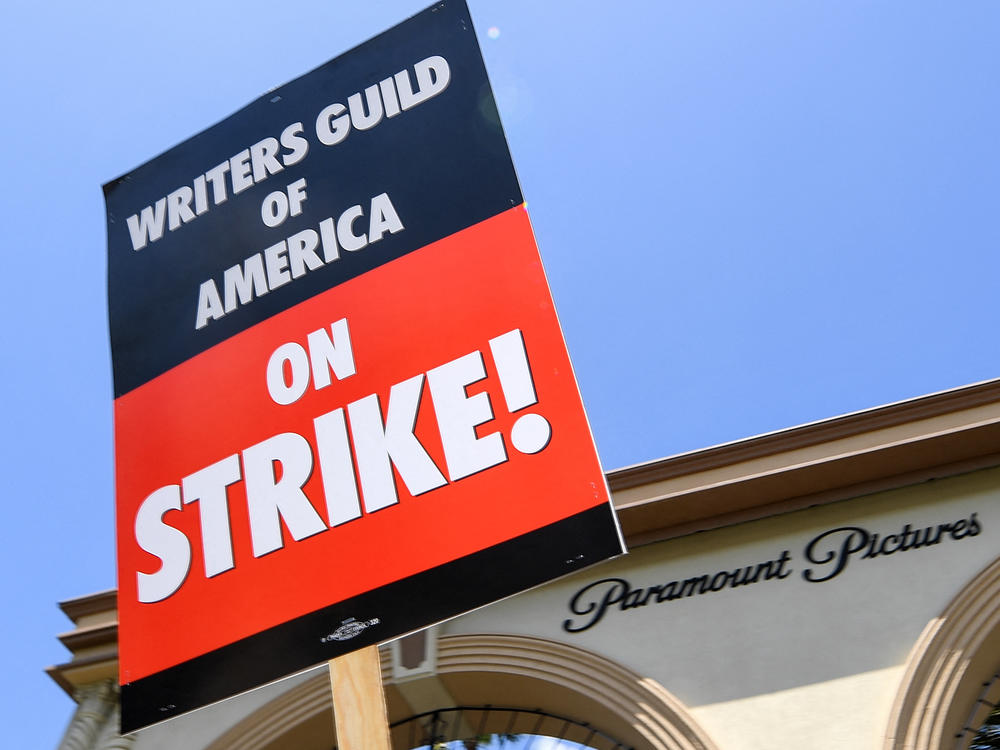Section Branding
Header Content
Hollywood writers reach a tentative deal with studios after nearly five month strike
Primary Content
Updated September 24, 2023 at 11:04 PM ET
Screenwriters and major Hollywood studios have reached a tentative three-year deal, which, if ratified, would end one of the strikes that have ground Hollywood to a halt.
"We can say, with great pride, that this deal is exceptional," the Writers Guild of America wrote in a letter to its 11,500 members, "With meaningful gains and protections for writers in every sector of the membership."
Union members still need to vote on the final contract, details of which were not immediately made public. WGA strike captains told them that until it's finalized, the strike is continuing and they are not to return to work. They also told members they are suspending its picketing, but they're encouraged to join striking actors in the union SAG- AFTRA this week.
It's been nearly five months... 146 days to be exact... since the WGA began its strike against the major studios represented by the Alliance of Motion Picture and Television Producers. The two sides met up only once during the summer, but it reportedly didn't go well — with writers accusing studio heads of lecturing them.
Disney CEO Bob Iger, Warner Bros. Discovery CEO David Zaslav, Netflix CEO Ted Sarandos and Universal Pictures chief content officer Donna Langley attended bargaining sessions over the five days. It was a highly unusual move, signaling studios' eagerness to return to work; the stoppage has already caused them to delay premieres of many films and series.
The two sides had been at an impasse, with screenwriters demanding higher pay and residuals when their work is re-run on streaming services. They also asked for a residual formula based on the number of views a show gets on the streamers.
But executives pushed back, worrying publicly about their profits and pointing out that they have laid off employees over the last few years. Streamers like Netflix and Amazon have also been reluctant to release data on their viewership.
Writers had asked for guaranteed staffing levels for television series, complaining about the new streaming model. In particular, they worried about using "mini rooms," where individual writers are hired to submit their work remotely, on spec, with no guarantees. The WGA argued that eliminating "writer's rooms" on TV series harms the continuity required for consistent storylines and characters and deprives newer writers of learning to be "showrunners" who oversee production.
In its last counter proposal, the AMPTP offered showrunners the ability to hire at least two writers for each show, but details of the newest agreement still need to be made public.
The studios also reportedly agreed to some demands to protect writer's work from using artificial intelligence in the writing process. In an earlier counteroffer, the AMPTP proposed bans on written material produced by generative AI software, saying it wouldn't be considered "literary material" or "source material."
Actors in the union SAG-AFTRA continue the strike they began in July; they've been waiting for the AMPTP to come back to them to negotiate their new deal. The actor's strike has been going on since July.
Copyright 2023 NPR. To see more, visit https://www.npr.org.

